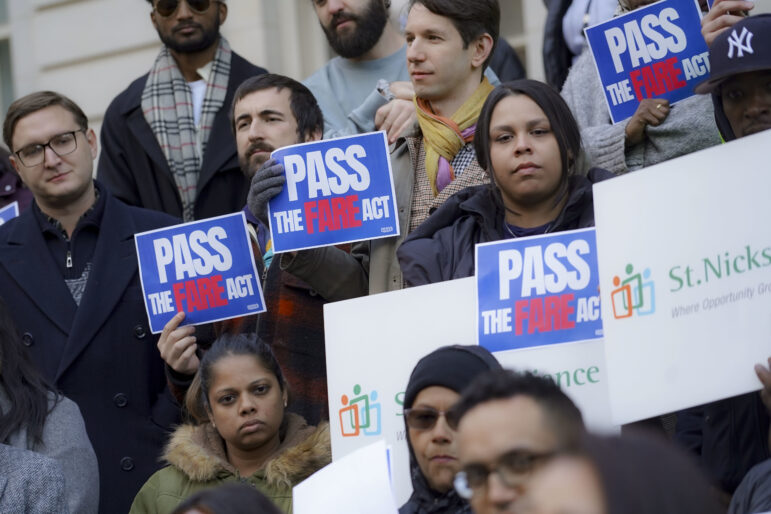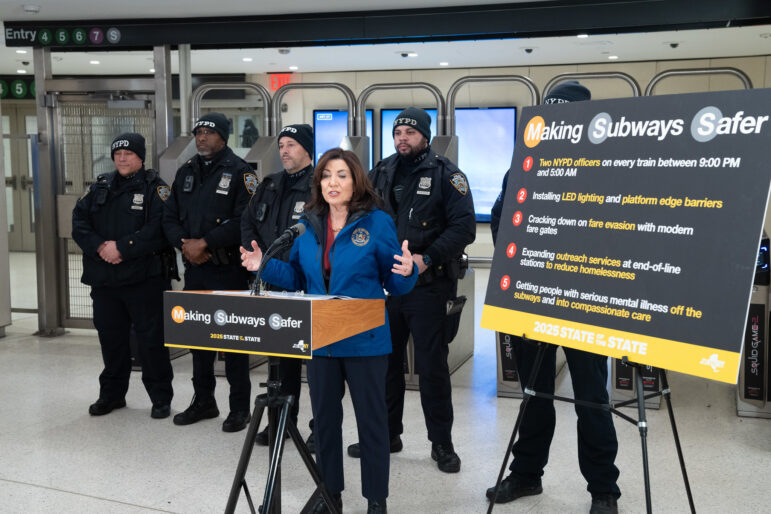Three years ago, Celia Myrick saw the rent for her federally subsidized apartment jump by a whopping 36 percent. Now, her trouble-plagued landlords are asking for another 21 percent hike–and tenants fear that the U.S. Department of Housing and Urban Development will hand it over to them without a fight.
“We’ve told HUD [the owner] shouldn’t be given another rent increase, but as far as they’re concerned nothing we say is true, but everything he says is true,” said Myrick. As president of the tenants association for Columbus Manor, at 70 West 93rd Street, Myrick plans to lead her neighbors in challenging the request.
Columbus Manor is one of 87 buildings around the city that were originally subsidized under the state Mitchell-Lama program but moved to a federal subsidy program during the fiscal crisis of the 1970s. Under HUD regulations, the agency must determine rent hikes based solely on landlords’ actual costs of utilities and repairs. But how that’s calculated can get very fuzzy very quickly.
“I don’t think HUD examines the figures carefully enough,” argues Robert Woolis, co-chair of the Mitchell-Lama Tenants Coalition, which has worked with tenants fighting rent increases in dozens of buildings. Brought in to examine landlords’ claimed expenses, Woolis has seen numerous abuses and distortions over the years. HUD, for example, assumes landlords operate with a 4 to 5 percent vacancy rate, when it’s really closer to 1 percent these days. He has also repeatedly seen landlords exaggerate their expense claims. (Woolis has not yet examined Columbus Manor’s rent hike proposal but plans to do so soon.)
HUD would do well to look closely at Columbus Manor: The high-rise’s owner, Affordable Housing, has already had run-ins with investigators. In 1996, finding the building in desperate need of a new elevator and roof, the agency demanded a switch in building management. HUD quickly relented when Affordable Housing principal Leslie Westreich promised to improve conditions. To fund the repairs, the feds approved the 36 percent rent increase, bringing the average rents to $600 for a one bedroom.
HUD had too much faith, it turned out. A year later, an agency audit found building management had inappropriately spent $28,000 in project money on staff salaries.
Another Affordable Housing owner is Baruch Singer, perhaps best known for the collapse of one of his buildings in Harlem in 1995, which killed three tenants. Westreich, a lawyer, was disbarred for “dishonesty, fraud, misrepresentation and deceit” in a real estate tranaction, according to court records. Westreich refused to comment for this story.
“These are very, very suspicious landlords,” said Cynthia Doty, special assistant for state Assemblyman Ed Sullivan. “So HUD’s auditing should be very meticulous. But it usually isn’t.”








